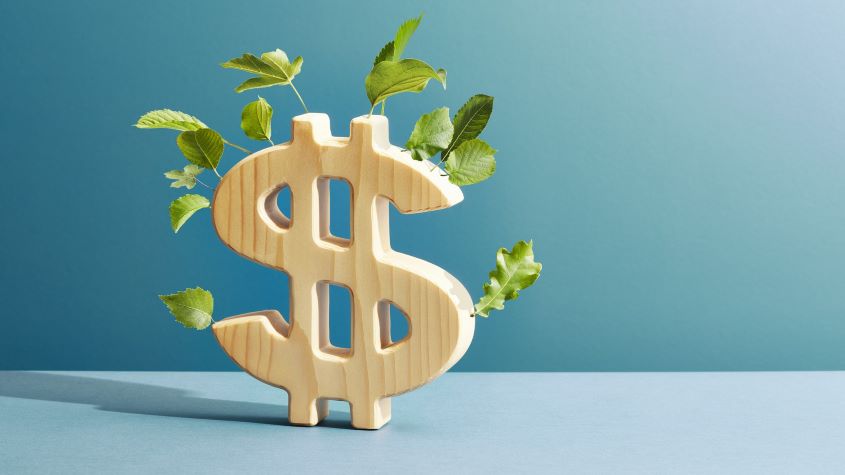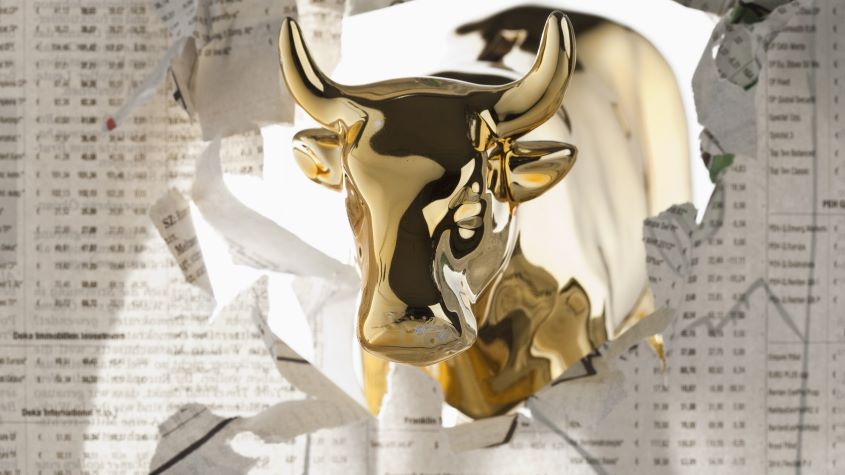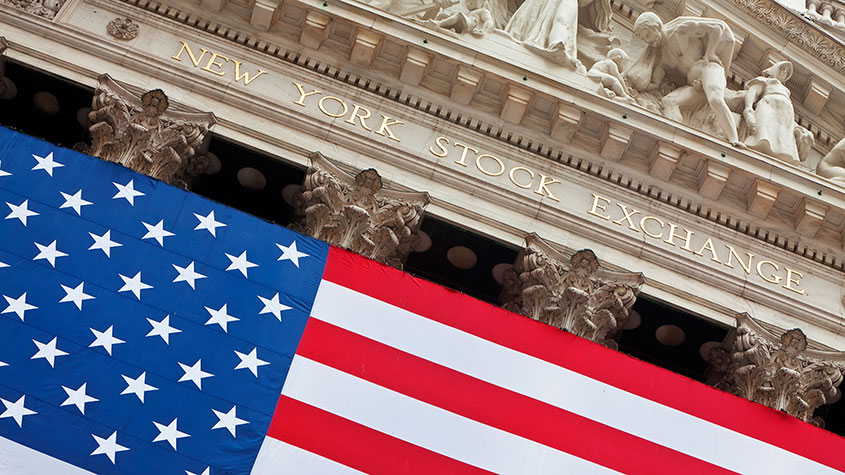Enjoy the bear market rally while it lasts
Investors seem to think that a weaker US economy will cool inflation and see the Fed relent on interest rate rises. But that optimism may be misplaced, with July’s stockmarket gains looking very much like a bear-market rally.

Get the latest financial news, insights and expert analysis from our award-winning MoneyWeek team, to help you understand what really matters when it comes to your finances.
You are now subscribed
Your newsletter sign-up was successful
Want to add more newsletters?

Twice daily
MoneyWeek
Get the latest financial news, insights and expert analysis from our award-winning MoneyWeek team, to help you understand what really matters when it comes to your finances.

Four times a week
Look After My Bills
Sign up to our free money-saving newsletter, filled with the latest news and expert advice to help you find the best tips and deals for managing your bills. Start saving today!
Recession? What recession? The US economy shrank at an annualised pace of 0.9% between April and June, its second successive quarterly contraction. In many countries that would meet the definition of a recession, but with unemployment close to a 50-year low and two vacancies for every jobseeker in May, the White House has rejected the label. “That doesn’t sound like a recession to me,” says president Joe Biden.
“The official designation is determined by eight economists” at the National Bureau of Economic Research, who also look at measures of jobs growth, income and spending to make a recession call, say Nicole Goodkind and Tal Yellin for CNN. They don’t think this slowdown qualifies.
Beyond the technical arguments, “what’s clear to everyone is the economy is slowing, prices are rising at their fastest pace in decades, and the housing market has started cooling as the Fed raises interest rates aggressively”, says David Gura on National Public Radio. Around 65% of US voters think the country is already in recession.
MoneyWeek
Subscribe to MoneyWeek today and get your first six magazine issues absolutely FREE

Sign up to Money Morning
Don't miss the latest investment and personal finances news, market analysis, plus money-saving tips with our free twice-daily newsletter
Don't miss the latest investment and personal finances news, market analysis, plus money-saving tips with our free twice-daily newsletter
Investors are too bullish
That hasn’t dampened investors’ spirits, however. The S&P 500 plunged 21% in the first six months of the year, but rallied 9.1% in July for its best monthly showing since November 2020, say Kate Duguid and Naomi Rovnick in the Financial Times. The tech-heavy Nasdaq Composite index gained 12.3%. Last week the US Federal Reserve hiked interest rates another three-quarters of a percentage point to a range between 2.25% and 2.5%. Yet investors increasingly think that a weaker economy will cool inflation and see the Fed relent fairly soon, says John Authers on Bloomberg. “That’s an unlikely scenario” that suggests a misplaced confidence in the Fed’s ability to manage the inflationary storm without reducing corporate earnings. July’s gains look like a bear-market rally, a moment when “it appears that all the selling is over and that it’s safe to take risks once more”, only for markets subsequently to plunge once again.
Bear-market rallies are not uncommon, says Robert Armstrong in the Financial Times. “I count four or possibly five in the 2007-2009 downturn.” There were also “three big ones, all of around 20%, interspersed within the 2000-2003 crash”. While this rally principally reflects “a softening of inflation” and interest-rate expectations, investors also appear to think that the US is heading for “either a shallow recession or no recession at all next year”.
Wall Street is being unduly optimistic, says Russ Mould of AJ Bell. Analysts are still forecasting increases for overall S&P 500 earnings in 2022 and 2023. That looks a “stretch” given soaring inflation and “sagging growth”. Note that “US corporate profits stand at record highs not just in margin and absolute dollar terms, but also as a percentage of GDP”, leaving limited room for further progress. While US valuations have come down this year, they still look expensive on the crucial cyclically adjusted price/earnings (CAPE) gauge. “Any time the CAPE ratio has stood at the current level, subsequent ten-year compound returns from US equities have invariably been negative.”
Get the latest financial news, insights and expert analysis from our award-winning MoneyWeek team, to help you understand what really matters when it comes to your finances.
Alex is an investment writer who has been contributing to MoneyWeek since 2015. He has been the magazine’s markets editor since 2019.
Alex has a passion for demystifying the often arcane world of finance for a general readership. While financial media tends to focus compulsively on the latest trend, the best opportunities can lie forgotten elsewhere.
He is especially interested in European equities – where his fluent French helps him to cover the continent’s largest bourse – and emerging markets, where his experience living in Beijing, and conversational Chinese, prove useful.
Hailing from Leeds, he studied Philosophy, Politics and Economics at the University of Oxford. He also holds a Master of Public Health from the University of Manchester.
-
 New PM Sanae Takaichi has a mandate and a plan to boost Japan's economy
New PM Sanae Takaichi has a mandate and a plan to boost Japan's economyOpinion Markets applauded new prime minister Sanae Takaichi’s victory – and Japan's economy and stockmarket have further to climb, says Merryn Somerset Webb
-
 Plan 2 student loans: a tax on aspiration?
Plan 2 student loans: a tax on aspiration?The Plan 2 student loan system is not only unfair, but introduces perverse incentives that act as a brake on growth and productivity. Change is overdue, says Simon Wilson
-
 Is it different this time for Japanese stocks?
Is it different this time for Japanese stocks?Analysis Nikkei 225 Index has jumped 19.8% this year, and there are signs the rally could continue.
-
 As China reopens, why pick an income strategy?
As China reopens, why pick an income strategy?Advertisement Feature Yoojeong Oh, Investment Manager, abrdn Asian Income Fund Limited
-
 Is Japan the best market to invest in now?
Is Japan the best market to invest in now?Opinion Japan puts Western economies to shame and offers good value for both equity and bond investors, says Max King.
-
 The highest yielding S&P 500 Dividend Aristocrats
The highest yielding S&P 500 Dividend AristocratsTips Dividends are a key component of investment returns in the long-term. A portfolio of dividend aristocrats is a great way to build wealth and a sustainable income stream.
-
 2023 will be a bumper year for stocks. Here’s how to play the rally
2023 will be a bumper year for stocks. Here’s how to play the rallyTips Dominic Frisby explains why he thinks the market rally could have further to run in 2023 despite macroeconomic headwinds
-
 A new dawn for Asian markets?
A new dawn for Asian markets?Advertisement Feature James Thom, Investment Manager, abrdn New Dawn Investment Trust plc
-
 China’s post-covid investment boom off to a slow start. Should you still invest in China?
China’s post-covid investment boom off to a slow start. Should you still invest in China?Advice Investors are no longer bullish on the China shop but the gloomy consensus on Beijing’s economy might be unfair. Should you invest in China?
-
 Stock market crash? This time it’s (slightly) different
Stock market crash? This time it’s (slightly) differentOpinion The bears expecting a stock market crash have got it wrong, says Max King.